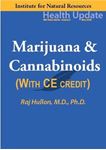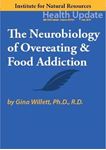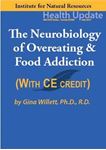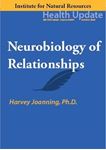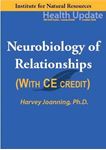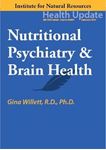You have no items in your shopping cart.
NJ NASW Approved
Marijuana & Cannabinoids - Streaming Video (w/home-study)
Outlines and describe the difference between Marijuana, Synthetic Marijuana, Hemp and various marijuana alternatives. Identifies the difference between CBD, THC and Synthetic Cannabinoids. Reviews the current “Legal Status” of Cannabis and Synthetic Cannabinoids in America. Describes the troublesome new statistics concerning addiction and the increase in “Youth Vaping” of THC and CBD. Explains human Opioid Receptors, Opioid analgesia and compare this to the Human Endocannabinoid system. Reviews the real evidence (or lack thereof) for pain control and analgesia with THC, CBD, and marijuana alternatives. Lists the difference between THC Oil, Marijuana Oil, Cannabis Oil, Hash Oil, CBD Oil, and Hemp Oil. Reviews the critical Adverse Drug Reactions that occur with THC and CBD. Describes how the information in this course can be utilized to improve patient care and patient outcomes. Describes, for this course, the implications for dentistry, mental health, nursing, and other healthcare professions.
$83.00
Mindfulness & Stress Reduction - DVD - 6 Hours (w/home-study exam)
Cites various effects of stress on the nervous system, including sympathetic arousal and the adrenal response. Describes the role of chronic stress in physical and psychological illnesses. Outlines mind-body therapies suitable for integrative health practices. Demonstrates the practical techniques related to mindful relaxation. Discusses the role of meditation and breathing techniques in stress reduction programs. Demonstrates simple exercises for use in alleviating stress symptoms. Describes how the Relaxation Response engages the parasympathetic nervous system. Describes strategies for integrating mindful stress-reduction methods into nursing, mental health, dentistry and other clinical practices.
$83.00
Mindfulness & Stress Reduction - Streaming Video - 6 Hours (w/Home-study)
Cites various effects of stress on the nervous system, including sympathetic arousal and the adrenal response. Describes the role of chronic stress in physical and psychological illnesses. Outlines mind-body therapies suitable for integrative health practices. Demonstrates the practical techniques related to mindful relaxation. Discusses the role of meditation and breathing techniques in stress reduction programs. Demonstrates simple exercises for use in alleviating stress symptoms. Describes how the Relaxation Response engages the parasympathetic nervous system. Describes strategies for integrating mindful stress-reduction methods into nursing, mental health, dentistry and other clinical practices.
$83.00
Neurobiology of Overeating & Food Addiction - DVD - 6 Hours (w/Home-study Exam)
Outlines the homeostatic and hedonic pathways that interact to regulate food consumption. Describes the neurobiology of overeating, altered brain structures and changes in chemical signaling that contribute to impaired food regulation. Outlines the evidence that supports the concept of food addiction, as well as the opposing view. Lists factors that contribute to overeating: genetics, epigenetics, hyperpalatable foods, gut dysbiosis, stress, maternal and early life factors, circadian disruptions, etc. Outlines potential approaches to control overeating: abstinence models, dietary modifications, cognitive therapies, neuromodulation, microbial manipulation and bariatric surgery. Describes how the information in this course can be utilized across the disciplines to improve patient care and outcomes. Describes, for this course, the implications for dentistry, mental health, nursing, pharmacy, occupational and physical therapy treatment goals, and other healthcare professions.
$83.00
Neurobiology of Overeating & Food Addiction - Streaming Video - 6 Hours (w/Home-study Exam)
Outlines the homeostatic and hedonic pathways that interact to regulate food consumption. Describes the neurobiology of overeating, altered brain structures and changes in chemical signaling that contribute to impaired food regulation. Outlines the evidence that supports the concept of food addiction, as well as the opposing view. Lists factors that contribute to overeating: genetics, epigenetics, hyperpalatable foods, gut dysbiosis, stress, maternal and early life factors, circadian disruptions, etc. Outlines potential approaches to control overeating: abstinence models, dietary modifications, cognitive therapies, neuromodulation, microbial manipulation and bariatric surgery. Describes how the information in this course can be utilized across the disciplines to improve patient care and outcomes. Describes, for this course, the implications for dentistry, mental health, nursing, pharmacy, occupational and physical therapy treatment goals, and other healthcare professions.
$83.00
Neurobiology of Relationships - DVD - 6 Hours (w/home-study)
Over the last 20 years, advances in neuroimaging have allowed scientists to directly observe brain functions while humans are engaging in behavior. This research has led to an improved understanding of how our brain functions when we are interacting with our mates and children. This workshop focuses on how to use this emerging knowledge of brain function to improve how we conduct therapy with individuals in intimate relationships.
$83.00
Neurobiology of Relationships - Streaming Video - 6 Hours (w/home-study)
Over the last 20 years, advances in neuroimaging have allowed scientists to directly observe brain functions while humans are engaging in behavior. This research has led to an improved understanding of how our brain functions when we are interacting with our mates and children. This workshop focuses on how to use this emerging knowledge of brain function to improve how we conduct therapy with individuals in intimate relationships.
$83.00
Nutritional Psychiatry & Brain Health - DVD - 4 Hours (w/Home-study Exam)
Lists key nutritional factors that are essential for a healthy brain throughout the lifespan. Explains how inflammation can contribute to depression and other psychiatric disorders. Describes how poor gut health and an altered gut microbiota could lead to neuropsychiatric and neurodegenerative consequences. Outlines the components of an anti-inflammatory diet to improve mental and cognitive health, as well as the strength of evidence to support the use of dietary supplements. Explains the link between stress and anxiety and food intake. Describes how the information in this course can be utilized to improve patient care and patient outcomes.
$69.00

